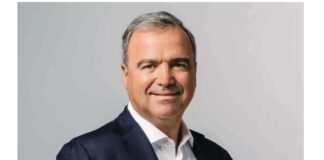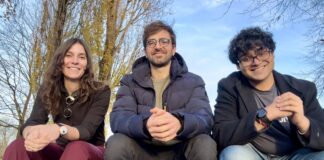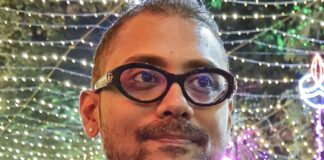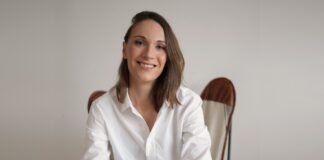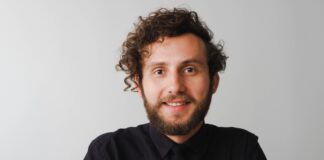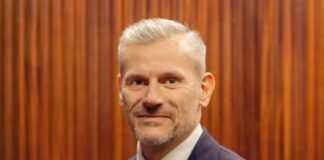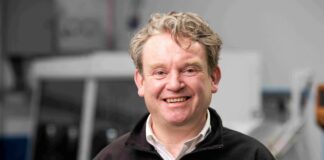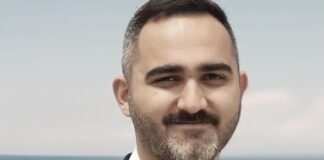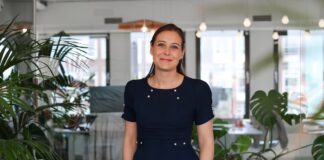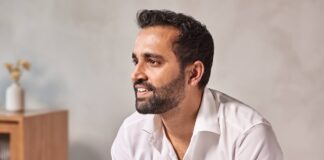LastBasic unites inventors with designers and engineers from around the world
Please introduce yourself and your startup LastBasic to our readers.
My name is Alejandro Turell, I’m the CEO and Founder of LastBasic. I set up LastBasic as an industrial engineer in 2017, using the learnings I gained from my master’s degree in Organisation Engineering, Project Management and Business. LastBasic is the first-of-its-kind industrial design and engineering platform which allows inventors to turn ideas into functional prototypes. The platform unites inventors with designers and engineers from around the world to create a product prototype at a fraction of the time of traditional, offline methods and at costs of up to 60% less than traditional engineering consultancies.
How did you get the idea of LastBasic?
I worked in a traditional engineering consultancy for some time after my graduation, and quickly grew frustrated with the industry’s traditionalism. Engineering consultancies are built for big companies with huge budgets to come forward with their product ideas, which is hugely limiting for the average person. People who have great tech ideas might not know how to proceed, nor have the time or budget to become a full-time inventor alongside existing commitments, but that doesn’t mean their idea is any less valuable.
These consultancies are not designed for inventors working alone, or as a freelancer or as a side project to their full-time job. The up-front cost of working with a consultancy can be extremely high, and even if an inventor does manage to raise the funds, they often find that they lose control of their design.
Why did you decide to start with LastBasic?
I wanted to revolutionise this archaic industry and open product development up to a broader range of people. During my business master’s programme, I learned about the sharing economy model, and knew that this was the right way forward for the engineering industry. This model, which is based on sharing access to goods and services within a community, could offer lower costs than traditional consultancies, as well as increased efficiency and a higher-quality output for inventors. Combining this knowledge with my engineering background felt like the perfect step to making the industry work for everyone.
What is the vision behind LastBasic?
LastBasic believes that everyone should dare to create real-world solutions to real-world problems, without financial barriers or overly complicated processes. We aim to become the biggest global meeting point in hardware technology creation and interaction, using a digital approach to link inventors with designers and engineers. For LastBasic, inventing should be underpinned by a community of likeminded people exchanging concepts and ideas, not limited by budget or time constraints.
How difficult was the start and which challenges you had to overcome?
I didn’t really have any money to build the company, so I had to focus on bringing in the right people to help me succeed rather than focusing solely on capital. I knew my project was a little out-of-the-box and non-traditional, so it was difficult to find people I could trust. Luckily, I was able to find colleagues with the right energy who saw value in my idea, and the business grew from there. Some people give up when they experience these kinds of challenges, especially when those around you in your personal life doubt your idea. I knew I had to stay focused, blind almost, and shut out these critics to succeed.
Who is your target audience?
At LastBasic we have two clear camps: our inventors and our experts. The inventor audience is incredibly broad; for example, we’ve worked with a serial entrepreneur, with years of experience creating products, and we’ve also worked with a local politician who had no experience with any of this, just an idea. The ideas are what make our target audience – it doesn’t matter who you are, what experience you have, or what you do, it just matters that you have an idea that you want to make a reality.
Our experts are a global community of designers and engineers who are specialists in their field. They are as diverse as the inventors are, each bringing a unique skillset that they use to create a part of an inventor’s idea.
What is the USP of your startup?
LastBasic is a home for anyone to invent, innovate and develop new economical prototypes in an easy and accessible digital environment. The platform unites inventors with designers and engineers from around the world to create a product prototype at a fraction of the time of traditional, offline methods and at costs of up to 60% less than traditional engineering consultancies.
Can you describe your typical workday?
I always start my day with a big cup of coffee and with my mind full of new ideas. After organising my thoughts and setting the day’s priorities, I meet my colleagues at the office. We have to start by getting up to speed on whatever happened during the night, because as we are a global digital platform, it is important that we don’t miss any opportunities that come through whilst we were sleeping.
For any startup and even more so for a leader, it is difficult to have a fixed daily schedule, as things evolve rapidly from one day to another. But, usually after a variety of different events and meetings with external partners, investors, and other stakeholders, I can move onto the rest of my day. My schedule is usually full of paperwork, troubleshooting tasks, and ad-hoc strategy meetings. These might not sound like the most exciting parts of my job, but they’re often the kind of tasks that get the best results, such as successfully closing a funding round or hearing positive feedback from a member of our expert or inventor community.
After a busy work day, spending time with my family and friends is the best way for me to recuperate my energy and start afresh the next day.
Where do you see yourself and your startup LastBasic in five years?
Our vision is to become the biggest global meeting point in hardware technology creation and interaction. We want to be a market network of tech trends for inventors to exchange concepts and ideas, providing a technical support ecosystem for entrepreneurs, SMEs, and corporations. The next three years will be spent defining and growing our three main pillars: inventors (our clients), revolution (the platform/innovation), and creation (our experts). We want to increase our presence, brand image and reputation in the UK, Europe, and US markets through marketing efforts as well as build partnerships with SMEs, corporations, engineering associations, universities and other organizations and institutions.
What 3 tips would you give to founders?
1. Be patient and persistent – if the market needs your solution, it will happen. Build fast and don’t fall into the trap of perfectionism, because there is always time for improvements. Make sure you start testing and validating as soon as you can and the sooner you start selling, the better.
2. You have to shut out the noise from those who say that ‘this won’t work’. If you really want something that will disrupt the industry you have to be a little bit blind and a little bit crazy to make it happen.
3. Trust in yourself and your team. A founder isn’t supposed to have the ability to do everything, you just need to have the ability to bring the right people on board at the right time to support you in your endeavour.
More information you will find here
Thank you Alejandro Turell for the Interview
Statements of the author and the interviewee do not necessarily represent the editors and the publisher opinion again



